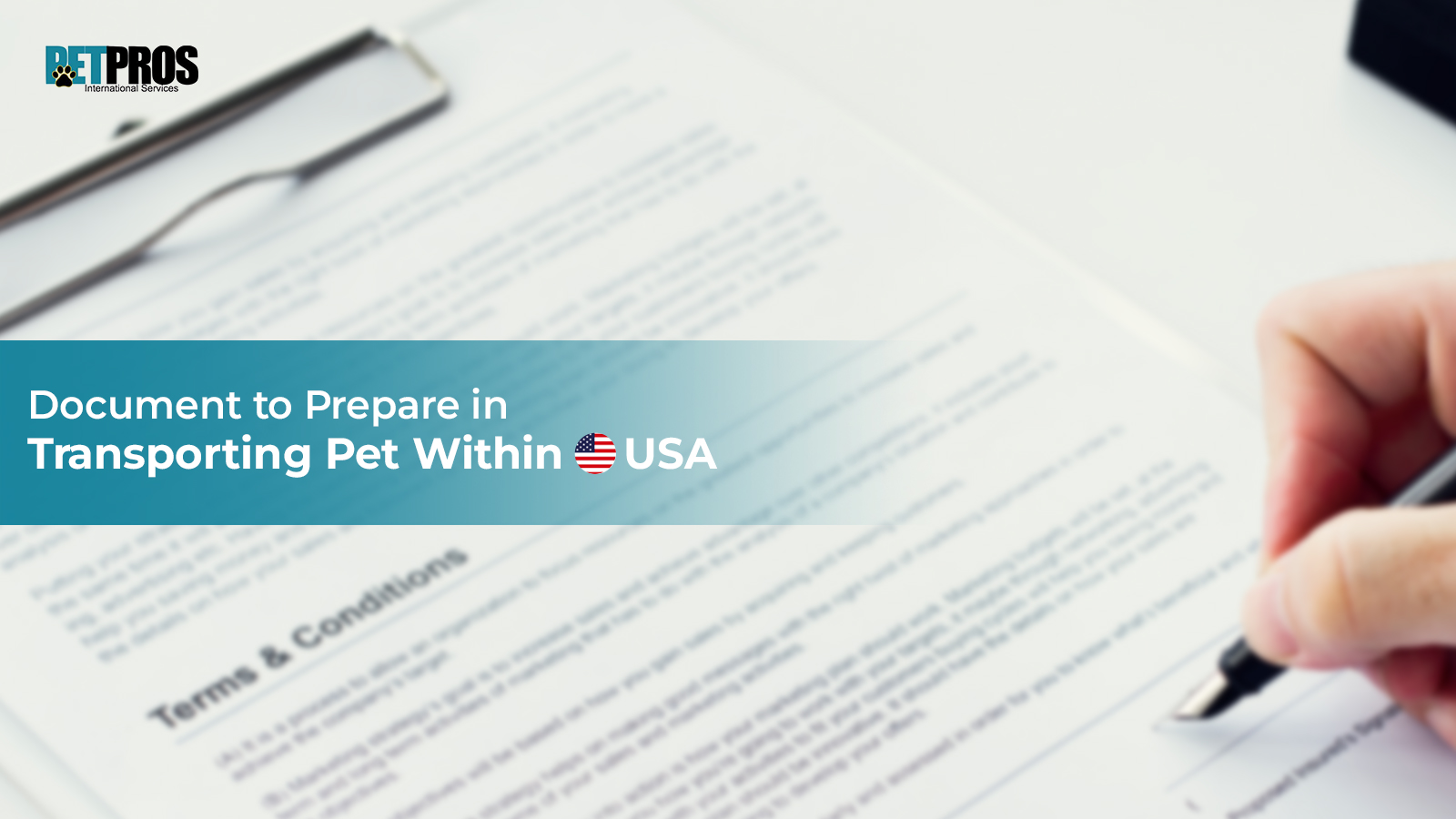To protect your pet’s safety and comfort throughout the journey within the United States, you must take some precautions. The following are the documents you must get ready:
Health certificate: To prove that your pet is in good health and fit to travel, you’ll need a health certificate signed by an authorized veterinarian. Within ten days of the scheduled departure, the health certificate must be issued.
Proof of immunization: Your pet must be current on all necessary immunizations, including rabies. Have a copy of their immunization records on hand to present to the police if necessary.
Identification tags: Make sure your pet has identification tags with your name, phone number, and address on their collar. In the event that your pet gets lost while traveling, this will aid in identifying them.
Airline-specific documents: If you are traveling with a pet, confirm the airline’s specific requirements. Several airlines have limits on particular kinds or types of pets or extra documentation requirements.
Requirements for carriers: If your pet will be flying in a carrier, make sure that it complies with the airline’s specifications for weight and size. Moreover, the carrier needs to be secure, leak-proof, and well-ventilated.
Other documents: You could also need import permits or health certifications from the state veterinarian, depending on the state you’re visiting or leaving from.
Before taking your pet on a trip, it’s crucial to do your homework and gather all the required paperwork in order to avoid any last-minute surprises or issues. Moreover, if your pet has any health difficulties, think about asking your veterinarian for advice on their travel needs.
Additionally, when transporting a pet within the United States, the pet owner is responsible for meeting all federal and state requirements. Depending on the destination state, the pet may need to meet additional health requirements. Generally, these requirements may include blood tests, vaccinations, microchips for identification, permits, and health certificates. Airlines and countries may also have different requirements, so it is important to research and talk to a vet about the pet’s travel plans and rabies vaccination.
The USDA APHIS website provides detailed information about pet travel, including taking a pet from the U.S. to another country (export), bringing a pet into the U.S. from another country (import), and taking a pet from one U.S. state/territory to another U.S. state/territory (interstate)[1] . Additionally, the U.S. Department of State website provides information about returning to the U.S. with pets[2], and the CDC website provides information about importing pets[3].





